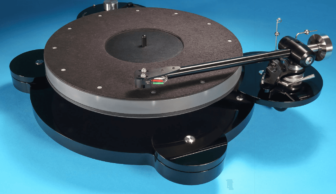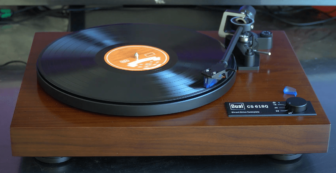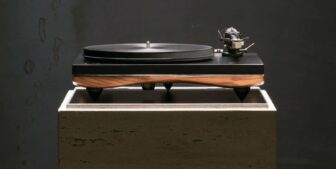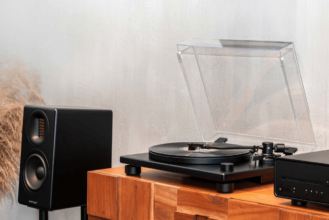Sovereign s/agile review: True ruler
Nick Tate reckons that this high-end turntable and tonearm combination is a truly majestic performer ark Baker is by profession a naval architect – which isn’t the most obvious qualification for a turntable designer, until you begin to think about the respective challenges. Ships are moving, rigid, load-bearing structures that are motorised and have to suppress vibrations and other external factors to do their job properly So, there are clear parallels. Read our Sovereign s/agile review.
The basic job, he says, is to create an inert platform that’s isolated from the external environment. Alongside this, the platter has to rotate at a constant speed, free of wow, flutter and rumble. This done, the stylus can accurately trace the groove’s tiny undulations.
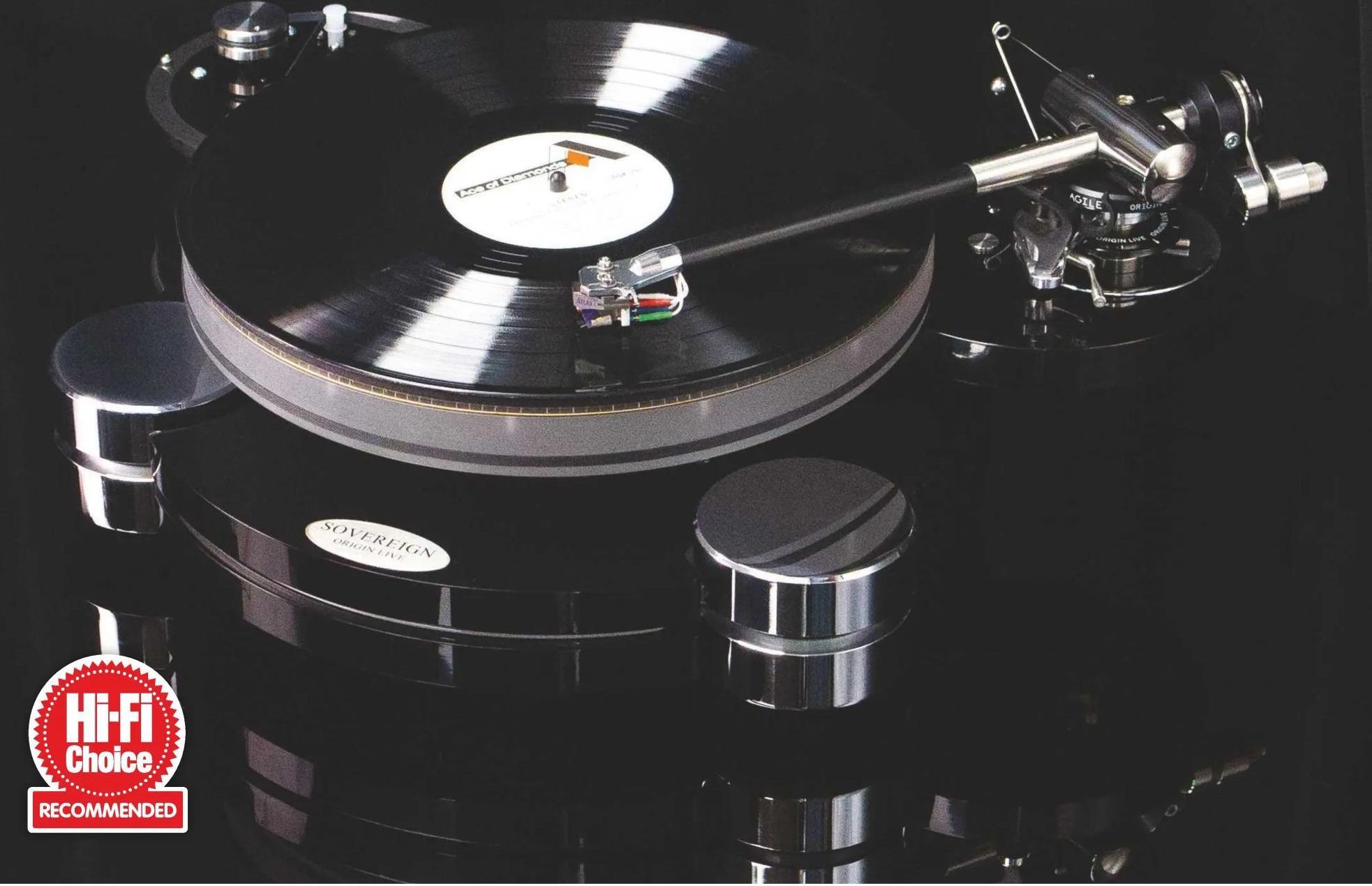
DETAILS
| PRODUCT | Origin Live Sovereign S/Agile |
| ORIGIN | UK |
| TYPE | Turntable/tonearm |
| WEIGHT | 28.4kg |
| DIMENSIONS (WxHxD) | 500 x190 x380mm |
| FEATURES | 33,45rpm Belt drive, DC motor design Single-point suspension Carbon fibre tube tonearm |
| DISTRIBUTOR | Origin Live |
| WEBSITE | originlive.com |
One of Origin Live’s early forays into vinyl was making after-market motors for belt-drive turntables. “Because we installed these in our clients’ decks,” Mark explains, “it gave us the invaluable opportunity to hear what certain decks did well, and what they did not.” He notes, however, that it’s difficult to measure the microscopic vibration which makes decks sound so different from one another. “Even modelling using fast Fourier techniques won’t tell you much because the effect of vibration on sound reproduction is incredibly complex. Origin Live decks adopt the approach that the nearer a component is to the stylus, the more influence it has on sound. This is because the vibration that needs to be controlled is not just from external sources, but much more importantly from the stylus itself – as it weaves its way through the groove, vibrating at up to 20,000 cycles per second.”
The £ Sovereign S is the penultimate turntable in Origin Live’s range, sitting under the flagship Voyager. It’s impressive, with a skeletal construction and separate, off-board DC motor, driven by a belt around the circumference of the platter. But the deck is packed with special engineering touches that make it what it is.
The plinth uses three high-mass layers to decouple the platter, bearing and armboard from the deck’s environment. The bearing is claimed to be an ultra-low friction design;
Regardless of the genre of music being played, I find myself utterly engrossed
Mark says friction creates vibration which is often disguised by the use of heavyweight platters. He argues that the latter tend to create much more vibration than lighter ones due to the bearing load on the spindle tip. The Sovereign S’s bearing spindle runs on a thin film of oil and makes no contact with the side wall, except on start up.
An interesting single-point suspension system is used, claimed to get round the problems caused by sprung sub-chassis designs. He says decks using three or more springs can transfer vibration between their support points, creating a resonance loop. Mark’s “imperceptibly flexible” system is designed to rapidly ‘ground’ extraneous mechanical energy, creating no chance for the suspension to start ringing.
The platter is a multi-layer design with inter-layer damping to dissipate energy near the cartridge as fast as possible, and/or absorb it. The armboard is twice as thick as usual, and has a weighty steel insert for secure tonearm attachment. It’s decoupled from the turntable plinth and balanced in equilibrium with the platter and bearing housing.
The motor is Origin Live’s DC300, the company’s highest-spec version said to be smoother, quieter and four times as powerful as its cheaper Aurora DC 100 type. It has ironless cores to eliminate eddy currents which result in low cogging, and is decoupled for minimal vibration. It’s driven by a special belt said to be better than standard neoprene types. The Sovereign’s power supply gives 33 and 45rpm via the twist of a knob. The S version tested here has a linear power supply, along with additional layers on the platter, for a price premium of £.
Costing a cool £, the Agile tonearm is the penultimate model in the Origin Live range. It features a very strong, low resonance armtube made from high-grade aircraft alloy that is coated and part carbon fibre. The rigid counterweight is decoupled to minimise energy reflection back down the tube.
Mark is no fan of sprung bias adjusters -a la Linn, SME, Rega, et al – and so the Agile has a falling weight type. It may not look as elegant, but his tests show it has lower friction and resonance. Internal wiring is Origin Live’s own ultra-low-loss Silver Hybrid-S, with silver-plated headshell clips, as is the one metre of arm cable.
Sound quality
This is one of the finest turntables I have ever heard – and I’ve tried many, including some far more expensive. As soon as the stylus enters the groove, it immediately reminds me of the sublime sound quality that’s available from vinyl.
The most profound thing that strikes the listener is the sheer naturalness of the music. With a suitably classy cartridge in the shape of Lyra’s Adas Lambda (£) installed, it makes Fleetwood Mac’s Rumours sound
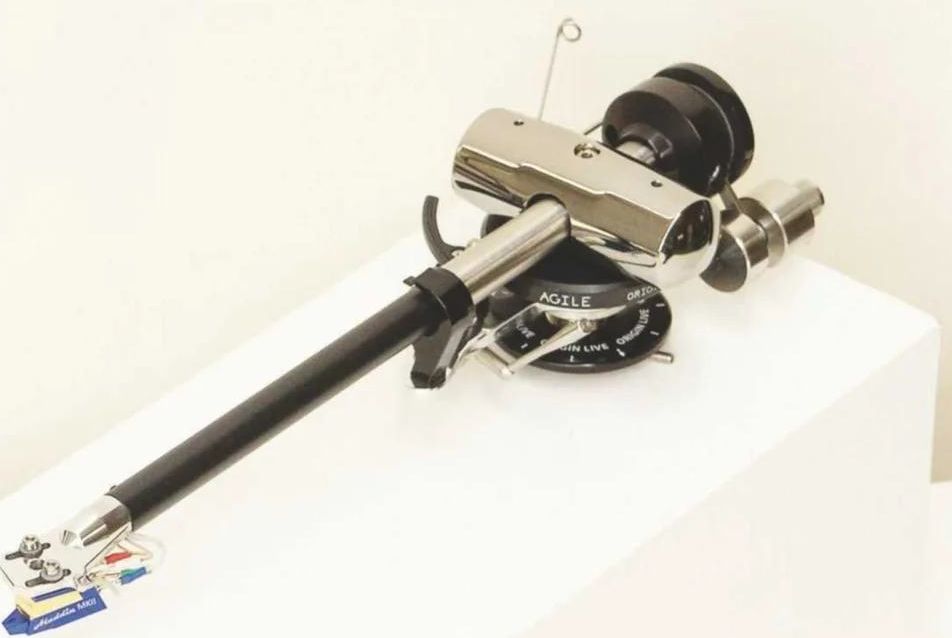
euphoric. Dreams is delivered in an absolutely sublime way. It’s easy to talk about the immense weight and power of the bassline and the almost holographic soundstage, but two things really take my breath away. First is the natural tonality; this is something I have never heard digital come close to; the tone and timbre of instruments and vocals is eery, almost supernatural as if they are in the room with me. Second is the deliciously supple and natural timing. The music simply floats along in the most beguiling way.
Fascinatingly, even though this turntable is an incredible performer in hi-fi terms (speed stability, noise floor, etc.), I don’t think about such things because the musical performance is so life-like. Regardless of the genre of music being played -the sugary pop of Spandau Ballet’s Only When You Leave, the haunting ambient classic that is The Cocteau Twins’ Crushed or the firecracker rock of The Who’s Who Are You? – I find myself utterly engrossed. My critical faculties switched off, such is the joyous sound issuing forth from my speaker…
The Sovereign S/Agile is forensically detailed – along with the music, you can hear the recording studio, vocal booth, the singer’s breathing, etc. – but its immense sense of musical occasion renders all this superfluous. The Robots by Kraftwerk has some clumsy edits – instruments fade in and out with extra tape hiss for example – and I can hear this more clearly than via any other turntable I’ve used. Yet somehow it doesn’t seem to matter because the music just connects with you.
I find the midband detail to be incredible, it’s almost as if this is a translucent window on the music.
Treble is a revelation, showing crystalline purity and immense air and space. Yet somehow it’s the rhythm and dynamics that really touch the listener – as evinced by Randy Crawford’s breathtaking phrasing on One Day I’ll Fly Away and Rose Royce’s Wishing On A Star. I am left floundering, wondering if this is as good as recorded music ever gets.
Conclusion
Normally, a hi-fi review is about describing a product’s pros and cons, and taking a view about whether the former outweigh the latter – then basing the verdict on this, considering the price of the product. With Origin Live’s Sovereign S/Agile turntable, it’s simply a case of whether you’re fortunate enough to be able to afford one. If you are, and have a large record collection, then you’re very lucky because this will transform it. The only downside is that you’ll very quickly realise what you’ve been missing out on all these years. There are other truly great vinyl spinners, of course, but this is absolutely in the top tier – and far less expensive than some of the very best •
OUR VERDICT
How it compares
The Linn Selekt LP12 and Ekos SE tonearm are a close rival to the Origin Live Sovereign S/Agile in price terms. Yet these two decks couldn’t be more different, as the Linn’s sub-chassis, motor and three-point suspension are inside its plinth. It sounds lovely, super smooth, mellifluous and gently musical. Yet it lacks the sheer translucency of the Origin Live, with a more coloured and opaque tonality that gives a more romantic rendition of the recording. The latest LP12 is superb, but not as open and immersive as this close rival.



